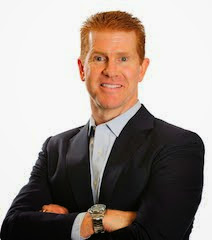I read one of the best articles on parenting recently in Time Magazine by Dr. Oz. I hope it helps you as it has me!
“There is a great moment in the movie Parenthood in which Keanu Reeves’ character says something to the effect of “You need a license to catch a fish, but anyone can become a parent.”
That is absolutely true. In this issue we explore some of the many illnesses and chronic conditions with which children can struggle, along with the progress that’s been made in diagnoses and treatments. Yet while science has made spectacular strides to the benefit of countless children, a definitive manual for a human being’s ultimate responsibility — bearing and rearing our young — remains elusive. Ironically, when we look to the educational, medical and social-work establishments, there is more guidance and reference material about children with challenges and problems than those without. As it pertains to the “average” child, there is less emphasis on how to keep healthy kids well and detect problems as they arise.
My wife Lisa and I have four children. We had our first when we were in our early 20s. Through the challenges of raising them, we’ve learned a lot — mostly from our own parents and children but also by observing the parents of our children’s friends. Never underestimate what you can absorb by watching and conversing. My training as a physician tempted me to look at every situation as a medical riddle. It took my wife’s gentle guidance to show me that children don’t often present those kinds of problems (except when they might need stitches).
Over time we realized that smart parenting is like guiding your child on the boat ride of life down a long, unpredictable river. You help control the canoe’s direction and speed, while your youngsters sit back and take in everything around them so they can learn to steer on their own. Your goal is to teach your passengers enough about the river so that you can eventually pass them the paddle. This includes explaining everything you see and telling them what they need to know about the boat itself — their bodies, their genetics, their family history. You also need to fill them with enough self-esteem and awareness of their strengths and weaknesses so that they will navigate wisely and well.
These insights became the foundation of our new book with Dr. Michael Roizen, You: Raising Your Child. To tackle many of the debates on parenting, we surveyed some top child-development specialists and pediatricians who happen to be parents. Here are some of our practical insights on how to be a smart parent:
You can be the greatest parent in the world by not being the greatest parent in the world. While it’s no surprise that an absentee parent isn’t healthy for kids, the 180-degree turn is also bad. An adult who overparents can actually hinder development. It’s better to be somewhere in the middle, giving children enough attention but also knowing that exploration and independence are crucial to their learning. Let them run the canoe close to the embankment periodically or they won’t learn how to recover from failure.
Pretend you’re a 3-D-movie maker. A child’s brain is like a sponge, so parents need to make the biggest mess they can. Spill everything: words, sounds, tastes, colors, shapes and smells! This will help nudge your child in the directions in which they 1) have the most interest and 2) have the most potential for success.
Kids are copycats. Parents need to be strong role models. Children will treat themselves much the way you treat yourself, and that should give us all pause. If you are overweight, your child has a 40% chance of being obese. If both parents are heavy, the odds rise to 80%. Taking care of yourself helps them learn the same skills.
Playtime teaches life lessons. “Play with your kids” is my favorite bit of advice. In our home, we hold frequent Oz Olympics — a mix of challenging physical and mental games — with all the kids to see how they respond to stress. I also adore telling bedtime stories, because the children are getting tired and so are more willing to listen. Within the stories, I embed allegories of life lessons. Stories and playtime are teachable moments. Never underestimate their value. They are the language our children speak.
For my fellow parents: You are better at this than you think. For future parents: You will be better at it than you expect and enjoy it more than you’d ever guess. ”
Original article:
http://www.time.com/time/specials/packages/article/0,28804,2026672_2026707_2026709,00.html#ixzz131icp4eM











